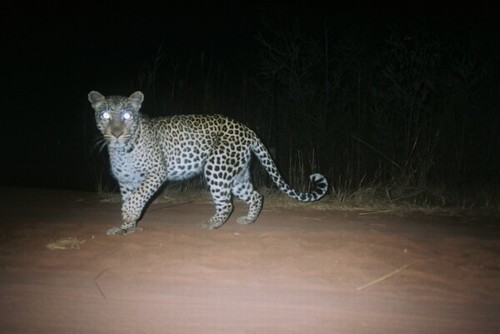 (click picture to enlarge)
(click picture to enlarge)THE SUNDAY INDEPENDENT AUGUST 17 2008
by ELEANOR MOMBERG,
Previously disadvantaged youths are to benefit from the donation of thousands of hectares of land to the Maharishi Institute by the Oppenheimer family
Prominent conservationists and philanthropists Nicky and Strilli Oppenheimer, of E Oppenheimer and Son and De Beers, this week donated the 4 500-hectare Ezemvelo nature reserve to the institute with the aim of promoting environmental and conservation-related education among South Africa’s youth
Nicky Oppenheimer said at the handover ceremony in Johannesburg that this was the fulfilment of a dream for the couple who had wanted to share “something special” since their purchase of the adjoining property 35 years ago
“We believe this will make a difference to the whole of South Africa,” he said
The reserve will be used to develop a rural eco-campus as well as promote ecotourism and conservation of the area situated on the Bankenveld, a transition ecozone between the grassland and savanna biomes, about 20km from Bronkhorstspruit
“Ecologically this is valuable as elements of both biomes occur within the reserve, creating a rich biological diversity,” said Duncan MacFadyen, manager of research and conservation at E Oppenheimer and Son
School-leavers attending the institute are taught not only business skills but also life skills through what is known as consciousness- based education, which includes transcendental meditation, the creation of a “safe, happy, harmonious” school atmosphere and the elimination of stress in the educational process as key elements
MacFadyen said more than 100 students had already attended structured leadership camps at Ezemvelo, with which a partnership had developed since its opening in Johannesburg a year ago
Although the donation of the reserve means that the land has been transferred to the institute, the Ezemvelo reserve, which boasts more than 34 species of animals and 250 bird species, will continue to remain open for business as an ecotourism destination
Taddy Blecher of the Maharishi Institute said the university’s intention was to create a showcase of sustainability using a maximum of possible alternative energy sources to move Ezemvelo off the electricity grid and to implement fair trade practices along with community upliftment programmes, such as access to further education
There were plans to expand the reserve to include an eco-campus where young people from previously disadvantaged communities would be trained for careers in conservation, guiding, eco-tourism management, organic farming, as well as alternative energy
Besides the eco-campus, the institute planned to create a centre of excellence in natural law-based programmes at Ezemvelo that would include consciousness- based education, a permanent exhibition venue for the total knowledge of natural law, a health spa, training in transcendental meditation and an organic vegetable farm
Dr Richard Peycke, the Maharishi Institute’s national director, said the combination of the university’s educational methods to develop the full potential of each person, combined with the beauty of the reserve, promised to create great future leaders for South Africa
Strilli Oppenheimer said she was confident that the institute would be successful in training future conservationists and environmentalists as the founders of the organisation had been with the training of business managers
“Ezemvelo Nature Reserve will be used as a tool, a rural, outcomes-based university, to allow these young men and women to connect and build their relationship with the environment we all so desperately want to conserve for future generations,” she said.






